This final How They Do It interview of 2017 is with Drew Smith, genealogist, writer, speaker and podcaster. Drew literally wrote the book about genealogy organizing. He is the author of Organize Your Genealogy: Strategies and Solutions for Every Researcher (Family Tree Books, 2016). You may also know him from the Genealogy Guys podcast, which he presents every other week with cohost George G. Morgan. (Alternate weeks he hosts the Genealogy Connection podcast.) Drew is also a frequent speaker and has a genealogy resume as long as my arm. (You can read his full bio at the Aha! Seminars website.)
I was so pleased he agreed to do this interview. I love how much he and I are on the same page when it comes to organizing family history research!
 How They Do It: Drew Smith
How They Do It: Drew Smith
How long have you been doing genealogy?
Since 1992
What’s your favorite part of doing genealogy?
Solving puzzles by putting together pieces of evidence.
Do you consider your genealogy research well organized?
I have been more organized recently, but when I started I didn’t know the best way to organize, so I have a lot of papers and files that I still need to go through that I have collected over the years.
What type of software do you use for organizing your genealogy research?
I have RootsMagic to keep track of my genealogical conclusions, Dropbox for my files, and Evernote for my random notes and ideas.
Do you keep a research log? If so, what format?
I have not been regularly maintaining a research log, although I do recommend to everyone that they keep one. I do keep some of that material in Evernote, and I have also begun to use Evidentia to track my research methods.
Do you have a tree on Ancestry? If so, is it public or private? Why?
I have gone back and forth on having a public vs. private tree numerous times, and now I have a public tree that has a major disclaimer on it that asks people not to treat everything in it as well researched. I feel that the benefits of having a public tree outweigh the negatives, as I may be discovered by a distant cousin this way.
What’s your biggest challenge when it comes to organizing your genealogy?
It can be so much fun in discovering something new that it can be easy to forget all of the processes for recording what the information is, where it was found, etc.
What’s your biggest piece of advice to beginning genealogists in terms of keeping track of their research?
Try not to go off in too many different directions at the same time. Focus on one line at a time, and one person.
What do you think is the most important thing for people to do to stay organized when it comes to family history research?
The most important thing is to have a simple, well thought out system for keeping files in both digital and paper form.
If you were starting out new as a genealogist what would you do differently?
I would make certain to make electronic copies of all papers, as digital files are easier to find than paper files.
Do you keep paper or electronic files (or both)?
I have both, although I feel that paper files are only important if they are one-of-a-kind documents, such as original copies of vital records. Otherwise, everything else can exist as electronic files, and be printed if needed.
Are you folder or binder person for your paper files?
I’m a folder person because I find it easier to move folders back and forth between the file drawer and my desk. And all my bookshelves are taken up by books!
Do you use Evernote, One Note or any other electronic organizing system for your genealogy? If so, how do you use it?
I’m a regular user of Evernote. I use it not only for genealogy but also for work-related projects and for items for home and personal care. I use it for grabbing useful genealogy blog postings, for keeping track of genealogy subscriptions and renewal dates, and for any ideas that might pop into my head on who to research next or what idea to pursue.
Do you have a dedicated space in your home for doing genealogy research? What’s it like?
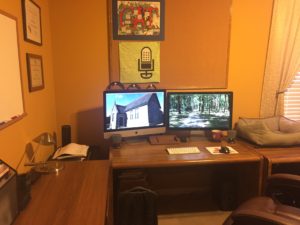 I have my own home office where I do all my research. A desk for my 27″ iMac and an additional monitor of equal size. A side credenza that has two file drawers and space on top for my current projects. A small whiteboard on the wall where I write the things I want to be focused on. Between the credenza’s two file drawers are a trash can and a brand-new shredder. On the other side of the home office is a bookcase with my most used books, and another desk that houses a wireless printer. And next to my primary computer desk is a former printer stand that has a UPS and cable modem/router below it, and a flat space on top for my office assistant, Oxford the cat, to sleep while I work.
I have my own home office where I do all my research. A desk for my 27″ iMac and an additional monitor of equal size. A side credenza that has two file drawers and space on top for my current projects. A small whiteboard on the wall where I write the things I want to be focused on. Between the credenza’s two file drawers are a trash can and a brand-new shredder. On the other side of the home office is a bookcase with my most used books, and another desk that houses a wireless printer. And next to my primary computer desk is a former printer stand that has a UPS and cable modem/router below it, and a flat space on top for my office assistant, Oxford the cat, to sleep while I work.
Do you have anything to add?
Genealogists should start to organize their research by starting simple and starting small, and building up from there. Otherwise, it’s too easy to become overwhelmed.
I love that Drew makes space for his cat, Oxford, in his workspace. It probably pleases me too much that even Drew Smith has trouble using a research log consistently. Thanks, Drew, for sharing your answers this month!
This has been a fun year of questions and answers in the How They Do It series. I plan to create a post this month about the themes that have emerged. Watch for new interviews in 2018!
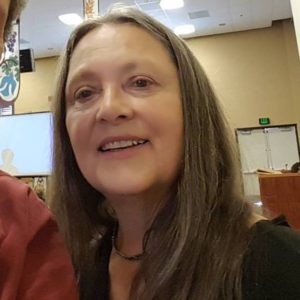
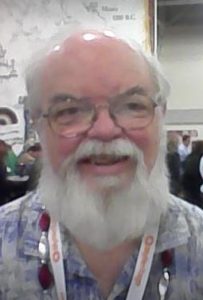
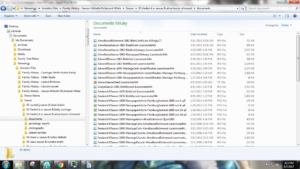
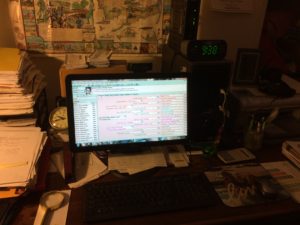
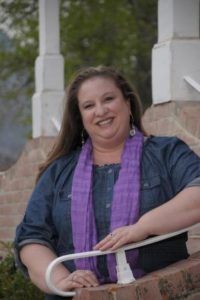 How They Do It: Crista Cowan
How They Do It: Crista Cowan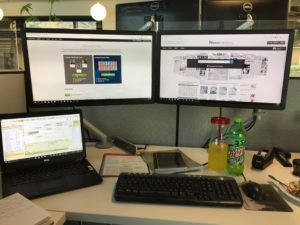 As the Corporate Genealogist for Ancestry, I’m lucky to get to do what I love every day as part of my job. So my work desk is my genealogy desk. I use a laptop as my primary computer and for years have had a large monitor attached to it so that I have double the screen space. Recently, however, I added a 2nd monitor so now I have three screens. I don’t know how I ever did without it. I can have Family Tree Maker open on one screen, Ancestry on another, and Newspapers.com on a third. It makes comparison and analysis of records so much easier. And, it ensures that my data entry is more accurate than if I had to flip back and forth between screens. I know this isn’t possible for everyone but even if you can just get a USB plug-in, portable monitor, it is totally worth it. That’s what I do at home – my laptop with a portable, plug-in monitor.
As the Corporate Genealogist for Ancestry, I’m lucky to get to do what I love every day as part of my job. So my work desk is my genealogy desk. I use a laptop as my primary computer and for years have had a large monitor attached to it so that I have double the screen space. Recently, however, I added a 2nd monitor so now I have three screens. I don’t know how I ever did without it. I can have Family Tree Maker open on one screen, Ancestry on another, and Newspapers.com on a third. It makes comparison and analysis of records so much easier. And, it ensures that my data entry is more accurate than if I had to flip back and forth between screens. I know this isn’t possible for everyone but even if you can just get a USB plug-in, portable monitor, it is totally worth it. That’s what I do at home – my laptop with a portable, plug-in monitor.